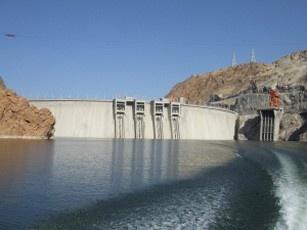MWH and joint venture partner Energoprojekt Co. Ltd., helped celebrate the completion of the $350mn Tekeze Hydropower Project in northern Ethiopia recently.
The government-funded project – and tallest dam in Africa at 188 metres-high – is expected to provide a reliable, renewable source of power for the country that has been forced to impose regular blackouts for its 80mn residents due to energy shortages.
MWH is a global wet infrastructure sector specialist and provider of environmental engineering, construction and strategic consulting services. The dedication ceremony, which took place in 14 November 2009 at the plant located on Ethiopia’s Tekeze River, attracted foreign and Ethiopian government officials, media and business leaders.
Low cost access for all communities
The Tekeze Hydropower Project is expected to provide 300 megawatts of clean, renewable power – 40 per cent more than the current 683 megawatts generated for the entire country. Due to the lack of fossil fuels, virtually all power in Ethiopia comes from hydroelectric sources. By tapping into the significant energy generation potential in the country’s rivers, this hydropower facility is designed as a low-cost way to increase the stability and access to light, heat and water for all communities. The project also creates opportunities for sustained social and economic growth for Ethiopians.
“The Tekeze Hydropower Plant is going to deliver immediate, significant and sustainable energy benefits for the people of Ethiopia,” said Alan Krause, president and chief operating officer of MWH. “We are very proud to be involved in this project that combines our expertise in wet infrastructure and our mission to help build a better world.”
MWH started working on the project in 1998, providing design review, preparation of construction drawings, bid packaging and evaluation, and on-site construction management services for the single largest public works project in Ethiopia’s history.
Since the hydropower plant is nearly three hours from the nearest city, MWH guided the development of 37km of roads and three small towns, where nearly 3,000 workers reside. Over the duration of the project, several hundred local engineers and technicians received formal classroom and on-the-job training, thus building the technical skills of residents for future initiatives.





















